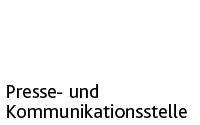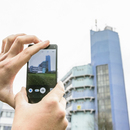Milestone in media research
The German Research Foundation (DFG) is setting up the Collaborative Research Centre “Collaborative Media” at the University of Siegen.
At the University of Siegen there is a tradition of excellent research in the field of media studies. This research is now being intensified at the highest level. The German Research Foundation (DFG) is setting up the Collaborative Research Centre (CRC) “Collaborative Media” at the University of Siegen.
Collaborative Media is one of 15 new Collaborative Research Centres in Germany. These are all being funded as of 1 January 2016, initially for four years with a total of 128 million euros; the University of Siegen is being supported with just under ten million euros. For the University of Siegen the establishment of the CRC constitutes a huge research achievement. The research focus “Media Studies” is being expanded through the CRC.
The spokesperson of the new CRC is Prof. Dr. Erhard Schüttpelz. “I am delighted for the University of Siegen. Although the Collaborative Research Centre is closely connected with the name Erhard Schüttpelz, it was a marvellous team effort. All the faculties are involved, so it remains for me to sincerely congratulate the entire team,” says Rector Prof. Dr. Holger Burckhart. Participating in the new CRC “Collaborative Media” are researchers from the humanities, cultural sciences, social sciences and engineering. The CRC has a key inter- and transdisciplinary approach, which makes up the thematic core of the research: a fundamentally changed view of media and therefore also of society. S
ince digital media, according to the researchers’ shared understanding, can no longer be viewed as individual media. Before digitization, a telephone was a device with one single function; nowadays smartphones allow wireless access to data storage on the internet and to networked social platforms, thus facilitating cooperative interaction between millions of people. Hence classic individual media, too, must now be understood in a new way again as collaborative media. Thus new analytical and theoretical approaches are required: media are based on technologies that we encounter as media infrastructures and that have a huge influence on our everyday lives. For this reason, they simultaneously repeatedly cause public controversies regarding their configuration and regulation.
The use of media in school education, in the “smart home” and at the workplace – which has now become unimaginable without computers, etc. – is changing dramatically. Accordingly, the Collaborative Research Centre addresses the cooperative implementation of media through and in their joint use and certainly not always with the consent of all participants. This process sometimes even starts with the stabilization of individual media. The Collaborative Research Centre therefore simultaneously explores the role of media infrastructures in generating public spheres, from personal to global ones, within which the above-mentioned controversies and others become possible. This is carried out with reference to both the past and the present and also with a perspective that goes beyond Europe. With its inter- and transdisciplinary research programme, the Collaborative Research Centre thus aims to contribute towards an understanding of contemporary digital culture. “The intense dedication of all those involved has been crowned with success.
With the approval of this Collaborative Research Centre, the long tradition of Siegen’s media studies is being further strengthened and our excellent research is coming more into view internationally,” says Prof. Dr. Peter Haring Bolívar, Prorector for Research and Future Academics. Looking back, he adds, “For more than three decades we have been producing diverse and high-profile new ideas. I am therefore delighted that what began with Germany’s first Research Training Group in the humanities, the “Intermediality” Research Training Group, is further gaining profile with ‘Collaborative Media’. Congratulations to everyone, especially Erhard Schüttpelz.”


